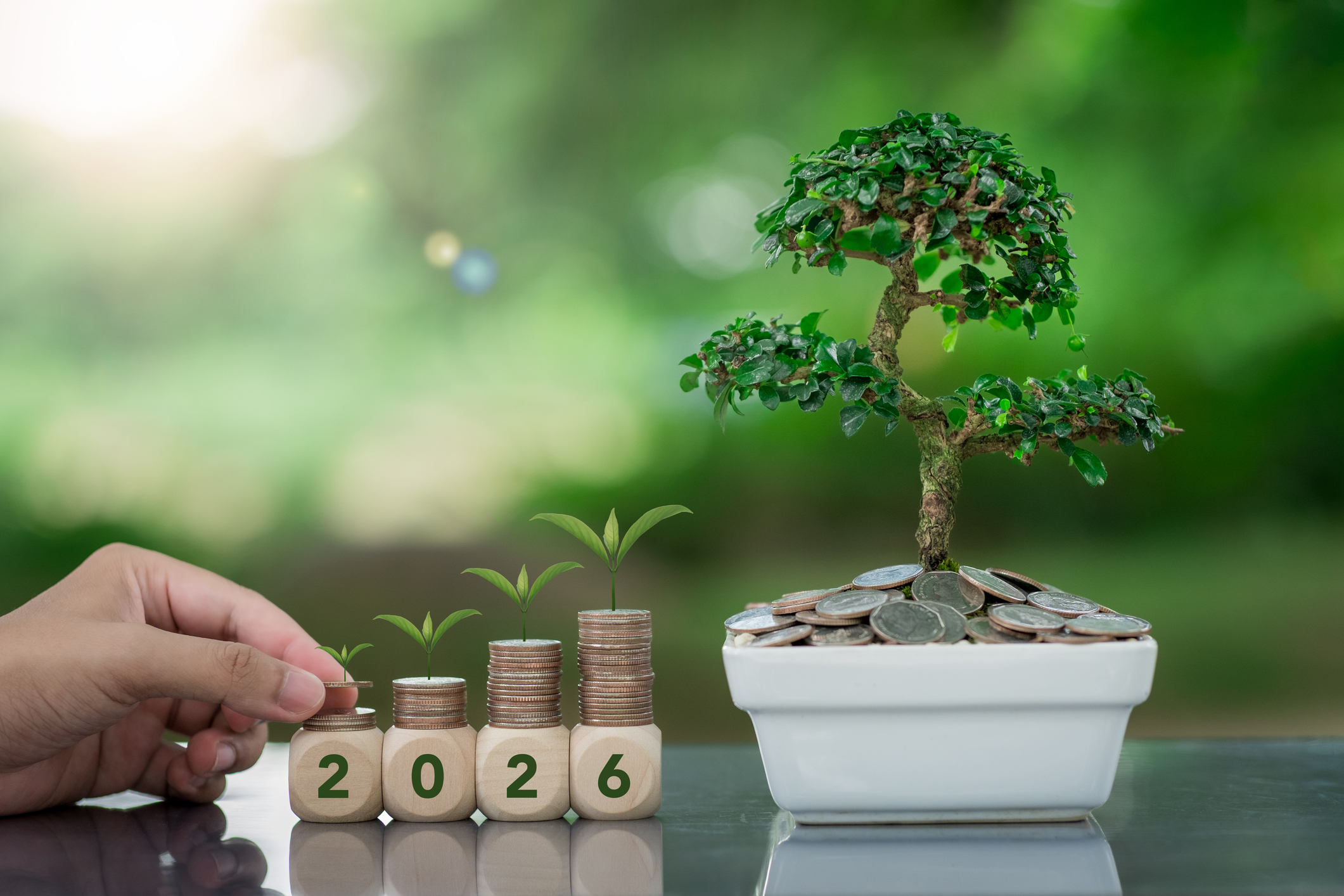CD vs. High-Yield Savings Account: Which is Better?
Deciding between a CD and a high-yield savings account? Here's how to choose based on your savings goals.

Erin Bendig
Profit and prosper with the best of Kiplinger's advice on investing, taxes, retirement, personal finance and much more. Delivered daily. Enter your email in the box and click Sign Me Up.
You are now subscribed
Your newsletter sign-up was successful
Want to add more newsletters?

Delivered daily
Kiplinger Today
Profit and prosper with the best of Kiplinger's advice on investing, taxes, retirement, personal finance and much more delivered daily. Smart money moves start here.

Sent five days a week
Kiplinger A Step Ahead
Get practical help to make better financial decisions in your everyday life, from spending to savings on top deals.

Delivered daily
Kiplinger Closing Bell
Get today's biggest financial and investing headlines delivered to your inbox every day the U.S. stock market is open.

Sent twice a week
Kiplinger Adviser Intel
Financial pros across the country share best practices and fresh tactics to preserve and grow your wealth.

Delivered weekly
Kiplinger Tax Tips
Trim your federal and state tax bills with practical tax-planning and tax-cutting strategies.

Sent twice a week
Kiplinger Retirement Tips
Your twice-a-week guide to planning and enjoying a financially secure and richly rewarding retirement

Sent bimonthly.
Kiplinger Adviser Angle
Insights for advisers, wealth managers and other financial professionals.

Sent twice a week
Kiplinger Investing Weekly
Your twice-a-week roundup of promising stocks, funds, companies and industries you should consider, ones you should avoid, and why.

Sent weekly for six weeks
Kiplinger Invest for Retirement
Your step-by-step six-part series on how to invest for retirement, from devising a successful strategy to exactly which investments to choose.
If you're looking for a place to store and grow your savings, you have multiple options. Two popular choices are certificates of deposit and high-yield savings accounts.
Both offer you rates that outpace inflation. Outside of that, they do have distinct differences you'll want to keep in mind when choosing which one works best for your needs.
With these things in mind, we'll take a look at the features of each and what to consider before signing up. That way, you find the right one to grow your savings.
When to choose a CD

A certificate of deposit (CD) is a type of savings account that holds a set amount of money for a fixed period, ranging anywhere from 3 months to 5 years. Unlike high-yield savings accounts, you won’t be able to withdraw cash from a CD before its maturity date. Doing so will result in fees that can offset any interest earned (unless you have a no-penalty CD account).
Furthermore, CD rates offer higher rates than on traditional savings accounts from brick-and-mortar banks, and in many cases, some of the best CD rates on the market feature an APY of over or around 4%.
Another notable aspect of CDs is that interest rates are locked in when opening a CD account, meaning if the Federal Reserve decides to cut interest rates this winter, it won't impact your term if you sign up now.
Use this Bankrate tool to find a CD term that works for you:
Because your money is locked away for a fixed time, CD accounts aren't good options for cash you may need quick access to, like money in an emergency fund. What CD accounts are good for is saving for a particular goal, such as a future purchase, like a new car, or an event, like a wedding.
For example, if you know you’re going to buy a car in three years, opening a three-year CD can help build your savings with minimal effort, thanks to compound interest, and also help you resist the temptation to spend your cash.
CDs offer a fixed, predictable rate of return on your savings. Our savings calculator tool can help you determine just how much you’ll earn in compound interest once your CD reaches maturity.
When to choose a high-yield savings account

A high-yield savings account functions in the same way as a traditional savings account, but with one main difference: High-yield savings accounts pay a higher-than-average APY on deposits.
In fact, many of the best high-yield savings accounts offer well over 4%. However, unlike CDs, rates on high-yield savings accounts are not fixed, meaning if the Fed cuts rates again in the future, your savings rate will drop as well.
As with CDs, before opening a high-yield savings account, be sure to review any fees or balance requirements associated with the account.
You can shop around and find the right account quickly, using this Bankrate tool:
There’s no term length associated with a high-yield savings account, as funds in the account are readily accessible. Unlike CDs, you won’t be charged a fee for withdrawing your cash.
Because of this, high-yield savings accounts are better suited towards savers who want quick access to their money, should an emergency arise.
They are also convenient for savers looking to add regular deposits. You can set up automatic transfers from your checking account to your savings to meet future goals.
Bottom line on CD vs. high-yield savings accounts
Both options help you grow your money and outpace inflation. CDs work best if you can put aside a portion of your money and not touch it for a specified time. They're also wise choices for savers looking to lock in a high rate if the Fed cuts rates more this year.
Meanwhile, high-yield savings accounts are better for people who want to earn a high rate of return, but also need quick access to their cash. In either case, make sure to shop around to find the best rates, and pay close attention to any fees associated with the account.
Related Content
Profit and prosper with the best of Kiplinger's advice on investing, taxes, retirement, personal finance and much more. Delivered daily. Enter your email in the box and click Sign Me Up.

Sean is a veteran personal finance writer, with over 10 years of experience. He's written finance guides on insurance, savings, travel and more for CNET, Bankrate and GOBankingRates.
- Erin BendigPersonal Finance Writer
-
 Quiz: Do You Know How to Avoid the "Medigap Trap?"
Quiz: Do You Know How to Avoid the "Medigap Trap?"Quiz Test your basic knowledge of the "Medigap Trap" in our quick quiz.
-
 5 Top Tax-Efficient Mutual Funds for Smarter Investing
5 Top Tax-Efficient Mutual Funds for Smarter InvestingMutual funds are many things, but "tax-friendly" usually isn't one of them. These are the exceptions.
-
 AI Sparks Existential Crisis for Software Stocks
AI Sparks Existential Crisis for Software StocksThe Kiplinger Letter Fears that SaaS subscription software could be rendered obsolete by artificial intelligence make investors jittery.
-
 One of the Most Powerful Wealth-Building Moves a Woman Can Make: A Midcareer Pivot
One of the Most Powerful Wealth-Building Moves a Woman Can Make: A Midcareer PivotIf it feels like you can't sustain what you're doing for the next 20 years, it's time for an honest look at what's draining you and what energizes you.
-
 I'm a Wealth Adviser Obsessed With Mahjong: Here Are 8 Ways It Can Teach Us How to Manage Our Money
I'm a Wealth Adviser Obsessed With Mahjong: Here Are 8 Ways It Can Teach Us How to Manage Our MoneyThis increasingly popular Chinese game can teach us not only how to help manage our money but also how important it is to connect with other people.
-
 Looking for a Financial Book That Won't Put Your Young Adult to Sleep? This One Makes 'Cents'
Looking for a Financial Book That Won't Put Your Young Adult to Sleep? This One Makes 'Cents'"Wealth Your Way" by Cosmo DeStefano offers a highly accessible guide for young adults and their parents on building wealth through simple, consistent habits.
-
 My Spouse and I Are Saving Money for a Down Payment on a House. Which Savings Account is the Best Way to Reach Our Goal?
My Spouse and I Are Saving Money for a Down Payment on a House. Which Savings Account is the Best Way to Reach Our Goal?Learn how timing matters when it comes to choosing the right account.
-
 We're 78 and Want to Use Our 2026 RMD to Treat Our Kids and Grandkids to a Vacation. How Should We Approach This?
We're 78 and Want to Use Our 2026 RMD to Treat Our Kids and Grandkids to a Vacation. How Should We Approach This?An extended family vacation can be a fun and bonding experience if planned well. Here are tips from travel experts.
-
 My First $1 Million: Retired From Real Estate, 75, San Francisco
My First $1 Million: Retired From Real Estate, 75, San FranciscoEver wonder how someone who's made a million dollars or more did it? Kiplinger's My First $1 Million series uncovers the answers.
-
 To Love, Honor and Make Financial Decisions as Equal Partners
To Love, Honor and Make Financial Decisions as Equal PartnersEnsuring both partners are engaged in financial decisions isn't just about fairness — it's a risk-management strategy that protects against costly crises.
-
 Top 5 Career Lessons From the 2026 Winter Olympics (So Far)
Top 5 Career Lessons From the 2026 Winter Olympics (So Far)Five lessons to learn from the 2026 Winter Olympics for your career and finances.